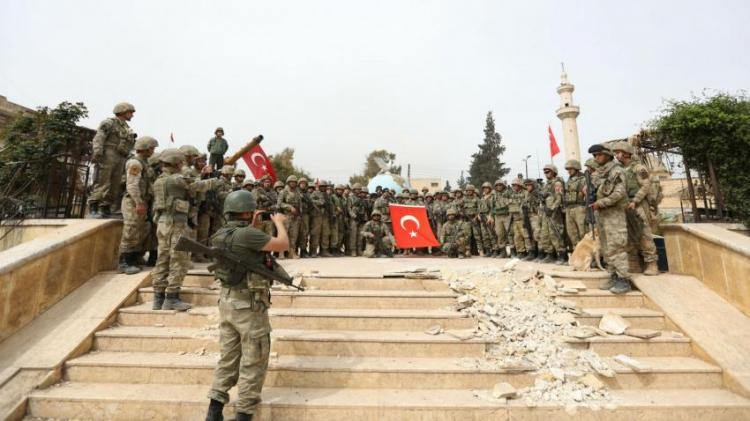US must examine Turkey’s current actions rather than view it as Cold War NATO ally – US Middle East Analyst
Lucas Chapman
NEW YORK, United States (North Press) – In an online seminar entitled “The Impact of Deadly Conflict on Kurds in Iraq and Syria,” hosted by Columbia University, on Friday, many expert panelists gave their opinions on the effects of conflict on the Kurdish community in Iraq and Syria, including Head of the Kurdistan Regional Government of Iraq’s (KRG) Department of Foreign Relations Safeen Dizayee, journalist and former media advisor to Jalal Talabani Hiwa Osman, Middle East Research Institute Director Dlawer Ala’Aldeen, and Middle East researcher and writer Dr. Amy Austin Holmes.
In Dr. Holmes’ opinion, the US continues to make three main policy mistakes regarding Kurdish-led Syria. The first of these is the tendency of the US to “address the symptoms instead of the cause,” focusing on the enduring defeat of the Islamic State, which distracts from other regional issues such as the Turkish invasions of Syria’s north.
The second of these mistakes, according to Dr. Holmes, is to compare the Kurdish-led administration in northeastern Syria to the Kurdistan Regional Government in Iraq (KRG), though the two are vastly different, with one of the main differences being northeastern Syria’s ethnic diversity as compared to that of the KRG.
The third mistake is to see Turkey “through the prism of the Cold War, and to still think of Turkey as a NATO ally as it has been for decades,” Dr. Holmes stated. Dr. Holmes, whose PhD dissertation covered seven decades of Turkish-American relations, argues that the US must “set aside the Cold War framework and look carefully at exactly what Turkey is doing now.”
In Dr. Holmes’ opinion, Turkish invasions of northern Syria follow a familiar pattern. Citing the two most recent Turkish attacks on Syria in Afrin in 2018 and Sere Kaniye and Tel Abyad in 2019, Holmes states that first, Turkish officials make a statement that they must intervene in Syria, and that they are targeting only the Kurdistan Worker’s Party (a Kurdish militant and political party which has been engaged in military conflict with the Turkish state since the 1980s), whose militants pose a threat to their national security.
However, Dr. Holmes aired her skepticism of this Turkish policy, mentioning a leaked memo from Ambassador William Roebuck which clearly stated that “the Syrian side of the border was quiet” for over a year prior to the Turkish invasion and occupation of Sere Kaniye and Tel Abyad in 2019.
Furthermore, Holmes explains, the primary victims in these incursions have been civilians, including “Kurdish civilians, Arab civilians, Christian civilians, Yezidis, and all of the other diverse civilian populations that live in the northeast of Syria.”
Holmes is not alone in her concern over the havoc Turkish invasions of northern Syria have wreaked on the local populace. According to a Human Rights Watch Report published a month after Turkey’s Operation Peace Spring, the country’s name for its invasion and occupation of Sere Kaniye and Tel Abyad, Turkey “summarily executed civilians and failed to account for aid workers who disappeared while working in the ‘safe zone.’” The report added that “contrary to Turkey’s narrative that their operation will establish a safe zone, the groups they are using to administer the territory are themselves committing abuses against civilians and discriminating on ethnic grounds.”

